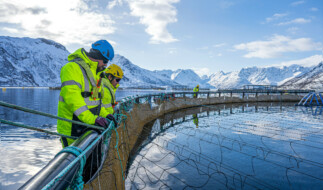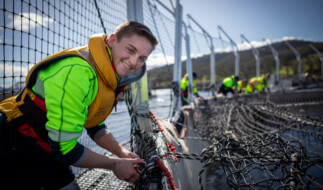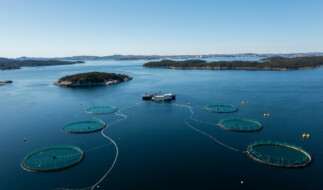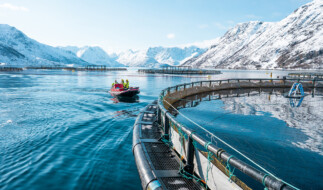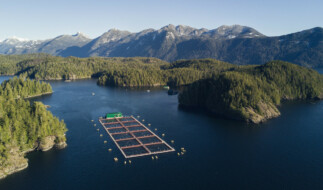GLOBAL SALMON INITIATIVE PUTS AQUACULTURE ON THE COP26 AGENDA
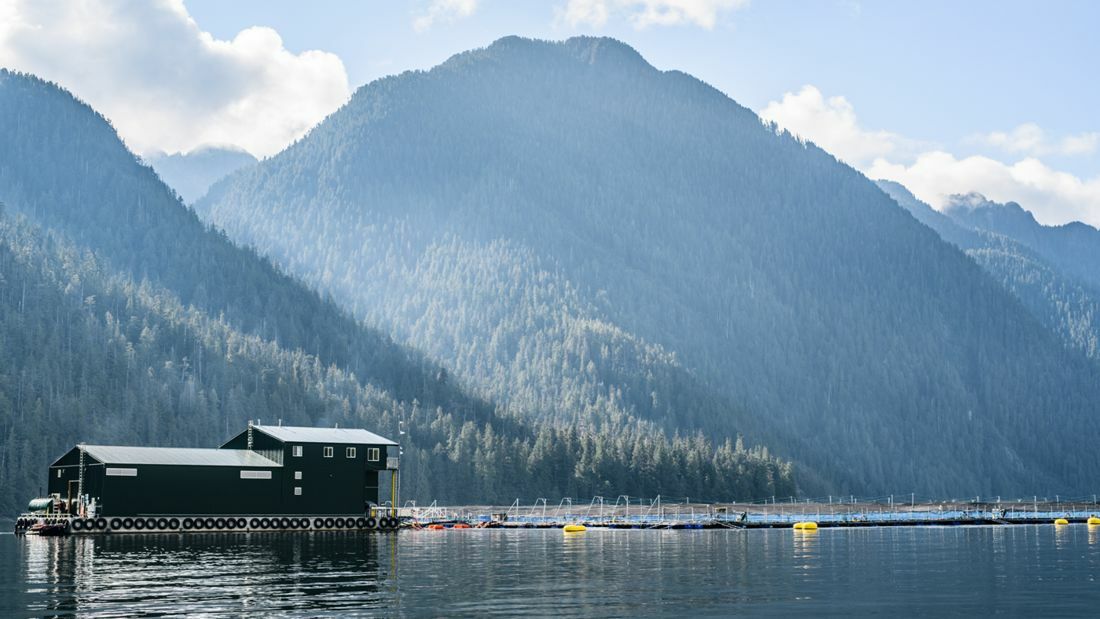
As world leaders met in Glasgow last month for COP26 – the world’s preeminent annual global climate conference – we headed to Glasgow to not only urge them to recognize aquaculture’s role in food systems transformation, but to also highlight the role the private sector can play in accelerating the changes needed, and share some example models of this in action.
Our CEO, Sophie Ryan, kicked off our panel by noting, “We know that to meet climate and food system goals, business as usual will not suffice. We need radical change, and we need it at speed and scale. That’s where GSI comes in, motivating ambitious goals and supporting the knowledge exchange and innovation to get there. This is not only a model that can work in aquaculture. It could and should be replicated in other sectors.”
Our COP26 panelists included:
- Sophie Ryan, chief executive officer of GSI
- Dag Sletmo, senior vice president and client advisor at DNB Bank
- Bruce Lourie, president of the Ivey Foundation and best-selling author
- Lisa van Wageningen, senior program officer, aquaculture at IDH, the Sustainable Trade Initiative
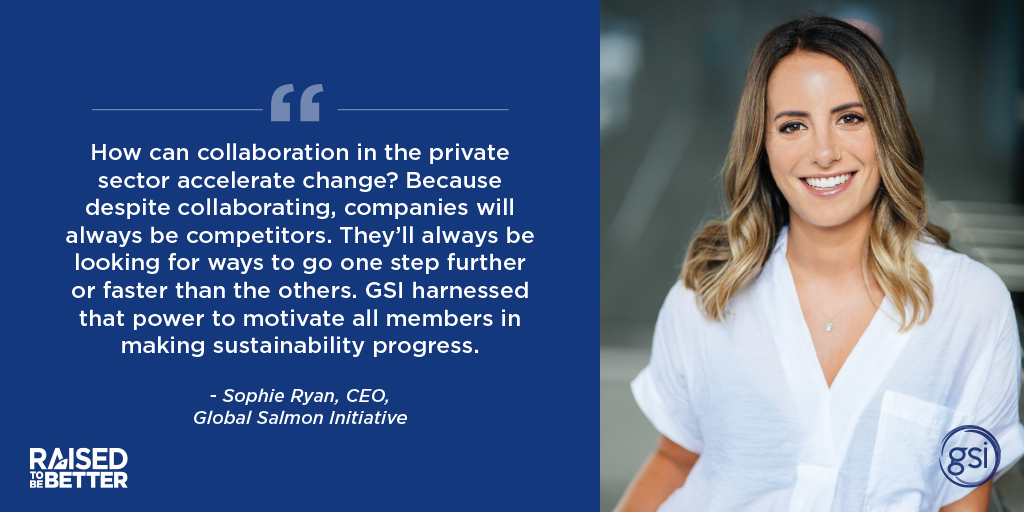
Here are our top three takeaways from the panel:
1. Private sector has a unique opportunity and obligation to drive food systems transformation
Panelists agreed the private sector is uniquely situated to drive significant progress across the food system. Sophie described how pre-competitive models like GSI’s have addressed the salmon farming sector’s most critical environmental challenges, accelerated the speed of innovation, promoted knowledge exchange and ensured widespread adoption of environmental best practices. She also emphasized how important it is that GSI is a CEO-led effort, which means the sustainability focus is incorporated into each member company’s overarching strategic direction, but the culture of change and collaboration runs down through the organization.
Panelist Bruce Lorie, president of the Ivey Foundation, agreed that there is significant power and knowledge within the private sector. However, he did add that for the highest impact, private sector action should be harnessed in combination with public policy to drive long-term improvements which make environmental, social and economic sense.
2. Financial institutions will turn up the pressure on private sector
Panelist Dag Sletmo, senior vice president at DNB Bank, spoke to the power of sustainable finance and ‘green bonds’ in enabling private sector’s transition to increasingly sustainable operations. He described how sustainability linked bonds (or, finance linked to sustainability performance KPIs, improvement programs or uptake of certifications) are not only providing avenues for companies to invest in improvements, but also providing guidance on what the priority areas are for environmental progress. What’s more, he noted, is that this often goes hand in hand with greater data or transparency which also supports industry improvements.
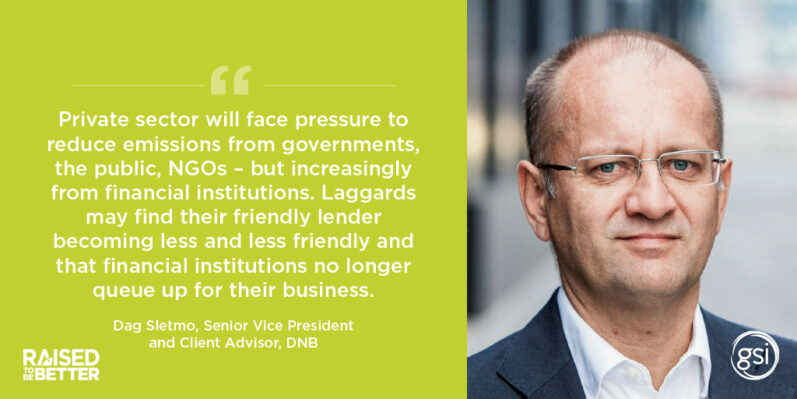
Dag Sletmo noted that private sector will face increased pressure from financial institutions to reduce emissions.
3. Measure what matters: Action requires accountability
Panelist Lisa van Wageningen of IDH trade underscored the importance of measurement and reporting to drive change. She noted, “When we talk about making environmental improvements, it’s important we’re all talking the same language. The only way to do that is to ensure we’re all measuring and reporting the same way, then we can really see where we are and where we are going.” In addition, she noted that in her experience, organizations can spend too long trying to decipher what goals and targets to set, but what really matters is progress. It’s better to get going and let the goals become clear when you have more data, she emphasized.
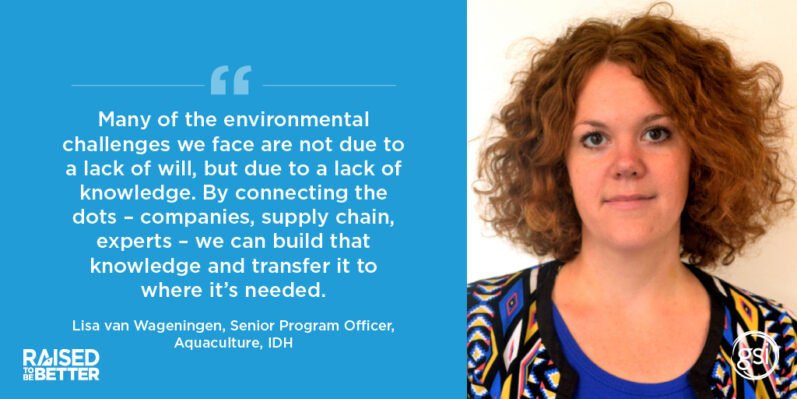
Lisa van Wageningen shared insights about how to tackle complex environmental challenges.
The GSI Sustainability Report, which captures data across all members in all regions across 14 key indicators, was highlighted as a solid example of how transparent reporting can help both drive industry-wide improvements, and also lead to effective dialogue with stakeholders regarding progress.
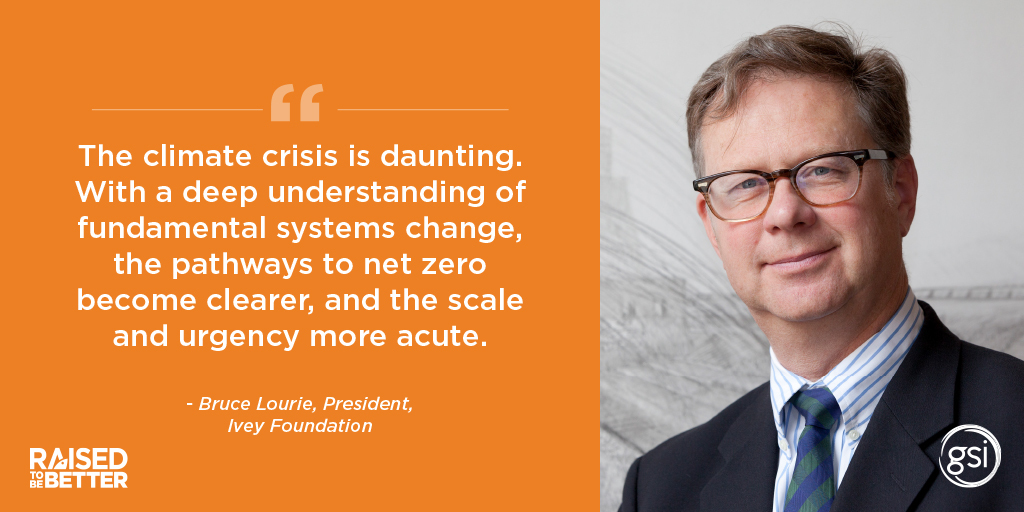
Blue foods sector can lead in responsible, low carbon food production
As Bruce reminded attendees, “Our planetary boundaries are directly shaped by the food on our plate. There is no solution to climate change without radically re-orienting the systems behind how our food is produced.” To ensure aquaculture, and blue foods more broadly, continue to provide healthy, sustainable and low carbon food sources, conversations like the ones held at our COP26 panel can help the industry continue to lead in responsible production. The aquaculture industry has grown significantly in its production and sustainability practices, and increased attention to how it can continue to grow by prioritizing transparency, collaboration and innovation is paramount.
